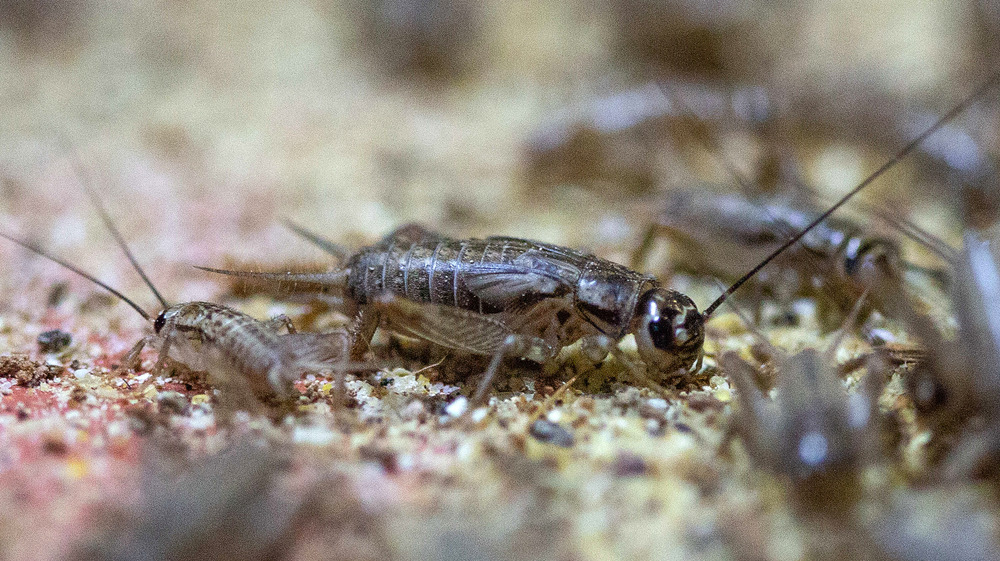The Weird Effect Noise Pollution Has On Crickets
All pollution is a blight on our planet, and even those that we don't see can impact the environment. Noise is one of the pollutants that we rarely think about, but now studies have shown it can be dangerous to animals.
A study published in the journal Behavioral Ecology showed crickets are more likely to choose lower quality mates when they are distracted by traffic noises. You see, male crickets have a mating "song," which is a sound they make by moving their wings and legs. Female crickets get a ton of information from the song, such as their fitness and immunity against some diseases, explained Smithsonian Magazine.
But because of noises all around them, female crickets become distracted and cannot distinguish better quality sound from potential mates. This whole thing isn't just a matter of crickets getting a dead-beat baby daddy. Cricket populations could fall if baby crickets don't have immunity to illnesses. According to CNN, field crickets play a large role in ecology as their fecal matter contains tons of cellulose, which helps plants grow faster. Not to mention, if some brutally honest predictions for the future are correct, we may all be eating crickets one day.
It's not just crickets
Researchers discovered the impact of noise pollution has on crickets by clipping a male cricket's wings to prevent them from producing their song and placing them in a terrarium with a female. The scientists then played sounds of a "high-quality" male. They found the females tended to mate more frequently while the sounds were in the background. But when traffic sounds were playing, the females had trouble distinguishing quality mating songs.
Crickets, especially male ones, have an arsenal of different sounds, from an angry chirp to ward off predators to the mating song. The insects are very much reliant on noise, so it's no surprise noise pollution affects them.
The researchers said more study is needed to fully understand how crickets mate and to get a better picture of how much human-made sounds have impacted them. Noise pollution not only affects crickets. Smithsonian Magazine noted bats and owls have trouble hunting for prey when traffic is particularly loud.
So the next time you let out your frustration via your car's horn, think of the cricket.

